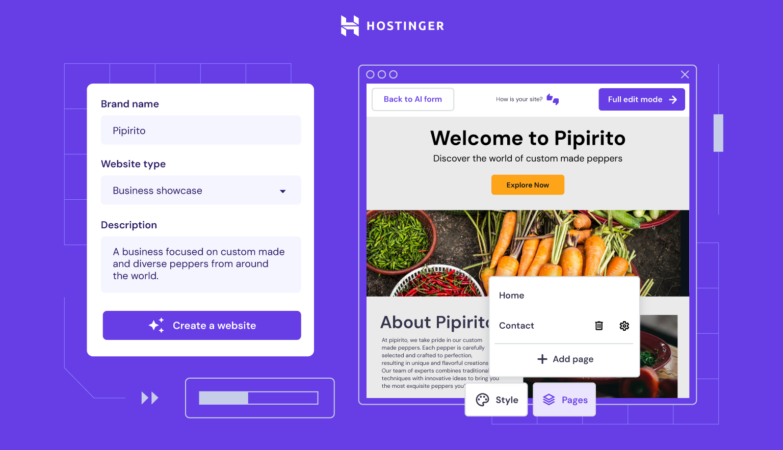In times of economic downturn, it’s important to identify sectors that tend to weather recessions better than others. By investing in recession-proof businesses, you can mitigate the impact of a downturn and potentially even profit. In this article, we will explore the top sectors for recession-proof businesses and provide insights on where to invest for security during economic downturns.
Key Takeaways
- Identifying recession-proof businesses is crucial for success during economic downturns.
- The healthcare industry is known for its resilience during recessions.
- Information technology and consumer staples sectors also tend to perform well during economic challenges.
- Investing in recession-resistant industries can provide stability and potential returns.
- Consider factors such as debt-to-equity ratios and cash flow when evaluating investment opportunities.
Top Industries for Recession Proof Businesses
When it comes to recession-proof businesses, certain industries have a proven track record of weathering economic downturns. These recession-resistant industries not only provide stability but also have consistent demand even during times of recession. By focusing on these sectors, businesses can increase their chances of thriving even in challenging economic conditions.
1. Healthcare Industry
One of the most resilient industries during recessions is healthcare. Regardless of changes in price or income, the demand for healthcare services remains relatively stable. Health care companies, including pharmaceutical companies and healthcare providers, often experience continuous demand, making them ideal for recession-proof businesses. Investing in recession-proof healthcare stocks or starting a business in this sector can provide stability and potential returns even during economic downturns.
2. Information Technology Sector
The information technology sector is another industry that has shown resilience during economic downturns. With the increasing reliance on technology in modern society, companies in the IT industry have experienced stable demand for their products and services even during recessions. Software developers and digital service providers, for example, have the potential to thrive during economic downturns due to the growing need for their offerings. However, it is crucial to thoroughly research and evaluate individual companies within the IT sector to determine the most recession-proof investments.
3. Consumer Staples Industry
Consumer staples, such as groceries, household cleaners, and personal care products, are essentials in daily life. These products enjoy consistent demand, as people tend to prioritize their purchase even during financial constraints. Major household brands and grocery chains have historically performed well during economic downturns, making the consumer staples industry a recession-resistant sector. Investing in businesses that offer these essential goods can provide stability and potential returns during times of economic uncertainty.
4. Real Estate and Communication Services
In addition to healthcare, technology, and consumer staples, the real estate and communication services sectors have also shown resilience during recessions. Real estate, particularly data center REITs and telecommunication tower REITs, has experienced growth due to shifts in business trends and increased demand for certain services. Communication services, including telecommunication companies and streaming services, continue to thrive as people seek entertainment and connectivity even during challenging times. However, extensive research and analysis are necessary to identify recession-proof opportunities within these industries.
By focusing on recession-resistant industries and understanding their unique characteristics, businesses can increase their chances of success and survival during economic downturns. Diversifying investments across these sectors can provide stability and long-term growth, helping businesses weather the storm and emerge stronger on the other side.
Healthcare: A Resilient Industry
The healthcare industry is renowned for its ability to fare well during economic downturns. As one of the recession-resistant industries, it offers stability and potential investment opportunities for those seeking recession-proof businesses. Healthcare encompasses a wide range of sectors, including pharmaceutical companies, healthcare providers, medical technology manufacturers, and biotech firms.
One key factor that sets healthcare apart is the essential nature of its products and services. Regardless of changes in price and income levels, the demand for healthcare remains relatively stable. People require medical care, medication, and treatment irrespective of the state of the economy. This consistent need for healthcare services provides a solid foundation for companies in this sector to weather recessions.
During economic downturns, the healthcare industry experiences steady demand for its products and services. Medical emergencies, chronic illnesses, and routine check-ups continue to happen regardless of the state of the economy. Additionally, the aging population and advancements in medical technology contribute to the growth and stability of the healthcare sector.
Investing in healthcare can take various forms, from purchasing stocks of established pharmaceutical companies to supporting innovative startups in the medical technology field. However, it is essential to approach healthcare investments with caution and conduct thorough analysis. Factors such as debt-to-equity ratios, cash flow, and the competitive landscape should be considered when selecting specific investments within the healthcare sector.
Key Attributes of Resilient Health Care Companies:
- Strong financial position and manageable debt-to-equity ratios
- Consistent cash flow and sustainable revenue models
- Robust research and development pipelines
- Strong market presence and reputable brands
- High-quality healthcare services and products
- Adaptability to changing market dynamics and technological advancements
[table]
[tr]
[th]Company[/th]
[th]Description[/th]
[/tr]
[tr]
[td]Johnson & Johnson[/td]
[td]A multinational pharmaceutical and consumer goods company that develops and manufactures a wide range of healthcare products, including pharmaceuticals, medical devices, and consumer health products.[/td]
[/tr]
[tr]
[td]UnitedHealth Group[/td]
[td]A diversified healthcare company that provides health insurance plans, healthcare services, and pharmacy benefits management. It operates through two main business segments: UnitedHealthcare and Optum.[/td]
[/tr]
[tr]
[td]Pfizer Inc.[/td]
[td]A leading biopharmaceutical company that focuses on developing innovative medicines and vaccines. It has a diverse portfolio of products in various therapeutic areas, including oncology, rare diseases, and vaccines.[/td]
[/tr]
[tr]
[td]Medtronic[/td]
[td]A global medical technology company that develops and manufactures medical devices and solutions. It specializes in areas such as cardiac and vascular health, diabetes management, and minimally invasive surgery.[/td]
[/tr]
[tr]
[td]Abbott Laboratories[/td]
[td]A healthcare company that operates in various areas, including diagnostics, medical devices, nutrition, and branded generics. It offers a diverse range of products and services to help people live healthier lives.[/td]
[/tr]
[/table]
Information Technology: A Dynamic Sector
The information technology sector has proven to be a resilient industry, making it an attractive option for those seeking recession-proof businesses. The sector’s stability can be attributed to the increased reliance on technology in modern society, with IT companies playing a crucial role in fulfilling the growing demand for digital products and services.
During economic downturns, certain information technology companies have not only weathered the storm but also experienced growth. This is primarily due to the essential nature of their offerings and the continued reliance on technology, even in challenging economic climates. Businesses that focus on software development, digital service provision, and other technology-related solutions have a strong potential to thrive during recessions.
However, it is important to note that not all companies in the IT sector are equally recession-proof. When considering investment opportunities, factors such as market capitalization and fundamentals should be carefully evaluated. Companies with strong financials and a solid market position are more likely to withstand economic downturns and emerge as leaders in the industry.
Benefits of Investing in Information Technology during Recessions:
- Stable demand: The growing reliance on technology ensures a consistent demand for IT products and services, creating a stable market even during economic downturns.
- Technological advancements: Recessions often accelerate technological advancements as businesses look to optimize processes and increase efficiency, presenting opportunities for IT companies to innovate and provide solutions.
- Remote work and digitization: The COVID-19 pandemic has highlighted the importance of remote work and digitization, further driving the demand for IT services and products.
- Long-term growth potential: The information technology sector is poised for long-term growth, with technologies such as artificial intelligence, cloud computing, and cybersecurity gaining prominence.
Investing in recession-resistant industries like information technology can help protect your portfolio during economic downturns. By carefully selecting companies with strong financials and a focus on innovation, you can position yourself for success even during challenging times.
Figure: Comparison of Market Capitalization for Select IT Companies
| Company | Market Cap (in billions) |
|---|---|
| Microsoft | 2,051 |
| Apple | 2,474 |
| Amazon | 1,580 |
| Alphabet | 1,841 |
| 859 |
Table: Market capitalization comparison for select information technology companies.
Consumer Staples: Always in Demand
During periods of economic recession, certain industries demonstrate resilience and stability, making them attractive for investment. One such industry is consumer staples, consisting of essential products that people need for their daily lives. These products, including groceries, household cleaners, and personal care items, enjoy consistent demand even during challenging economic times.
When facing financial constraints, individuals tend to prioritize the purchase of consumer staples as they are fundamental necessities. Therefore, companies in the consumer staples sector, such as major household brands and grocery chains, have a history of performing well during economic downturns.
Investing in consumer staples is a strategic move, as it provides stability and potential returns in times of economic uncertainty. Even during a recession, people continue to rely on these products, ensuring a steady market for businesses operating within this industry.
If you’re considering recession-proof investments, consumer staples should be on your radar. These businesses offer an opportunity to maintain profitability and withstand economic fluctuations.
Take a look at the table below for examples of well-established consumer staples companies:
| Company | Product Category |
|---|---|
| P&G | Household and Personal Care |
| Kraft Heinz | Food and Beverage |
| Colgate-Palmolive | Oral Care and Personal Hygiene |
| Kroger | Grocery and Supermarket |
These companies have a proven track record of resilience and durability, making them strong contenders for recession-proof investments in the consumer staples industry.

Other Recession-Resistant Industries
In addition to healthcare, information technology, and consumer staples, there are other industries that have shown resilience during recessions. Real estate, particularly data center REITs and telecommunication tower REITs, have experienced growth during economic downturns due to shifts in business trends and increased demand for certain services. Communication services, including telecommunication companies and streaming services, have also proven to be recession-resistant, as people continue to seek entertainment and connectivity even during challenging times.
When it comes to real estate, data center REITs have thrived during recessions due to the increasing reliance on cloud data storage and digital infrastructure. Telecommunication tower REITs, on the other hand, have benefited from the continuous need for improved connectivity and communication networks.
Additionally, communication services such as telecommunication companies and streaming services have seen increased demand in recessions. With people spending more time at home, the need for connectivity and entertainment has grown significantly. Telecommunication companies provide essential services for staying connected, while streaming services offer a wide range of entertainment options for individuals and families.
While these industries tend to perform well during recessions, it is important to note that not all companies within these sectors exhibit the same level of resilience. When considering investments in real estate or communication services, thorough research and analysis of individual companies is crucial to ensure a recession-proof portfolio.
FAQ
What are recession-proof businesses?
Recession-proof businesses are companies or industries that tend to fare well in times of economic downturn. These businesses have stable demand and may even experience growth during recessions.
What are recession-resistant industries?
Recession-resistant industries are sectors of the economy that are less impacted by economic downturns. These industries often have stable demand for their products or services, making them more resilient during recessions.
Are there recession-proof jobs?
While no job is completely immune to the effects of a recession, certain industries tend to offer more job security during economic downturns. These include healthcare, education, government, and essential services.
Can investments be recession-proof?
Some investments are considered more recession-proof than others. Stocks or sectors that exhibit stability and consistent performance during economic downturns are often seen as safer investments during times of uncertainty.
What are recession-proof business ideas?
Recession-proof business ideas are ventures that cater to essential needs or have consistent demand despite economic downturns. Examples include healthcare services, essential consumer goods, and online businesses.
Are there recession-proof careers?
While no career is entirely recession-proof, certain professions offer more stability during economic downturns. These may include healthcare professionals, educators, government workers, and skilled tradespeople.
Which sectors are considered recession-proof?
Some sectors that are generally considered recession-proof include healthcare, information technology, consumer staples, real estate, and communication services. These sectors have historically shown resilience during economic downturns.
What are recession-proof business models?
Recession-proof business models are strategies that focus on meeting essential needs, providing cost-effective solutions, or targeting stable markets. These models aim to minimize the impact of economic downturns and maintain consistent performance.







